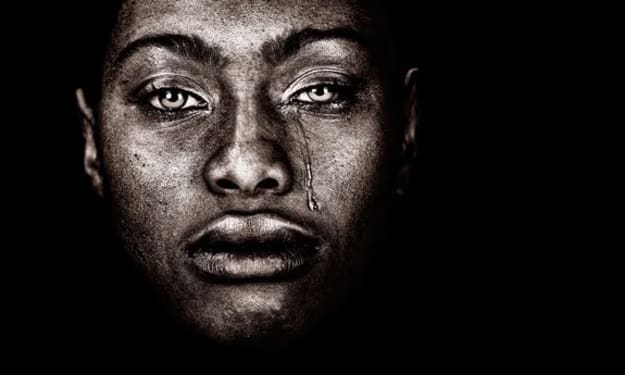From Hurt to Hurtful: How Unresolved Trauma Can Fuel Verbal Abuse
Verbal Abuse: Why Acknowledging Childhood Trauma is Key to Understanding the Psychology Behind It

Being in a relationship with an abusive partner can be a traumatic and challenging experience. While physical abuse is often the first thing that comes to mind, emotional abuse can be just as damaging. This is especially true when the abuser has a history of abandonment and neglect, as they may struggle to form healthy attachments in adulthood. In this article, we will explore why victims of emotional abuse need to move on from the relationship, even if they are married, and the steps they can take to protect themselves.
Growing up without love and support from at least one parent can lead to attachment issues in adulthood. The lack of a secure attachment to primary caregivers can make it difficult for individuals to form healthy relationships. Some may become overly attached to their partners, while others may become avoidant or dismissive. However, some individuals may resort to emotional abuse, using aggression and control to intimidate and manipulate their partners.
In such relationships, the victim often becomes trapped in a cycle of abuse. The abuser lashes out at them, apologizes, and promises to change, only to repeat the cycle. This behaviour can be especially harmful to the victim's mental health and well-being, leaving them feeling helpless and trapped in the relationship.
An abuser's childhood history of neglect and abandonment can help explain why they struggle to form healthy relationships and resort to emotional abuse. For instance, if a person lost one parent at an early age due to a tragedy and the other parent never provided them with love or care, they may find it difficult to establish secure emotional connections in adulthood. This can result in anger and resentment towards the world, manifesting as explosive outbursts directed towards their partner.
While it is understandable why an abusive partner may act this way, it is unacceptable. Emotional abuse is never okay, no matter what the abuser's background is. Victims of emotional abuse deserve to be treated with respect and kindness, and they are not responsible for their partner's abusive behaviour.
One of the most challenging aspects of emotional abuse is that the abuser often claims to love their partner. They may even genuinely believe that they love their partner, but their actions do not align with their words. They are verbally abusive and cannot show empathy towards their partner, as they feel like their partner is their enemy that they are in competition with. They do all the horrible things and then apologize and promise to change, but never put any action into actually changing.
Victims of emotional abuse must understand that the cycle of abuse is unlikely to stop, even if the abuser apologizes and promises to change. These promises are often empty gestures, and the abuse is likely to continue, if not worsen, over time. This is why it's important for victims of emotional abuse to move on from the relationship, even if they are married.
Leaving an abusive relationship is never easy, but it is essential to recognize that the abuse is not your fault. Victims of emotional abuse should seek support from friends, family, or a therapist and take steps to protect themselves from further harm.
If you are in an emotionally abusive relationship, it's important to have a plan in place for leaving safely. This may involve seeking support from a domestic violence shelter or hotline, talking to a lawyer about your options for divorce or legal separation, and ensuring that you have a support network in place.
It's also important to prioritize your mental health and wellbeing. This may involve seeing a therapist or counselor, practicing self-care activities like meditation and exercise, and reaching out to supportive friends and family members.
In summary, it's important to recognize that emotional abuse can be just as harmful as physical abuse. Victims of emotional abuse should not blame themselves and must realize that they have a right to be treated with dignity and compassion. It's crucial to acknowledge that the abusive behavior is unlikely to stop, even if the abuser expresses remorse or vows to change.
About the Creator
Mitchella O Erayoma
Writing helps me better understand myself and my experiences.
Reader insights
Outstanding
Excellent work. Looking forward to reading more!
Top insights
Easy to read and follow
Well-structured & engaging content
Expert insights and opinions
Arguments were carefully researched and presented
Eye opening
Niche topic & fresh perspectives






Comments (2)
Some good tips provided for this challenging issue. 😊✨
Great read